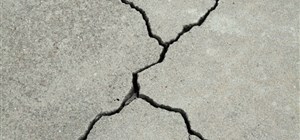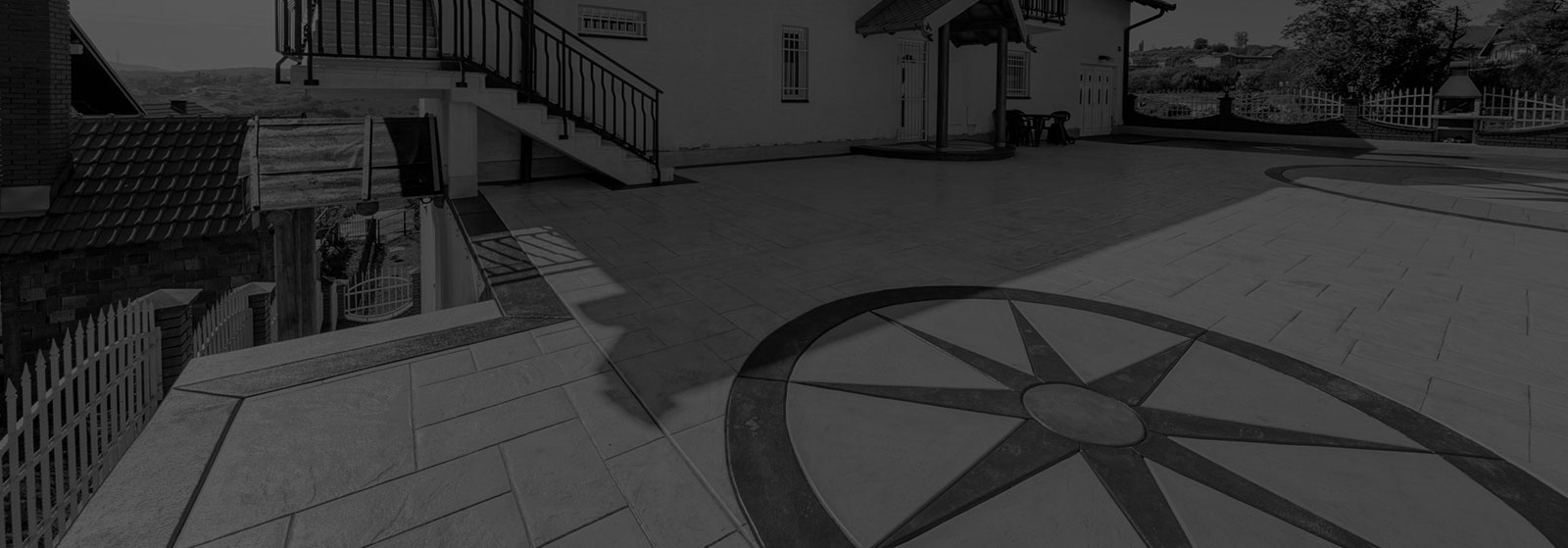You’re backing out of your garage one day to start your morning commute when you notice it: a long, winding, jagged crack in your concrete garage floor. Should you panic? Is this crack just the result of age? Is it simply cosmetic? Or is it severe enough to be indicative of larger problems?
Concrete naturally cracks for countless reasons. Generally speaking, most cracks are simply superficial and pose no threat to your concrete structure’s integrity. In other words, you’re probably not in trouble! However, severe cracks can suggest deeper issues that will require remedial concrete work. As a creator of everything from concrete driveways to concrete patios, Creative Concrete is here to help educate you all about concrete cracks.
Let’s discuss how to know when cracks cross the line from a simple aesthetic change to a real concern.
WHY DOES CONCRETE CRACK?
Many concrete cracks are completely normal and nothing to fret about! Due to concrete’s composition, it can naturally crack a little as it dries, and under natural external stressors, cracking over time is to be expected. However, if the cracks are wide enough, that’s definitely a sign that you need professional help.
As a rule of thumb, if you can drop a nickel in the crack, then it’s a cause for concern, and you should call a local concrete company to begin remedial work. Otherwise, your crack is probably nothing to worry about.
Aside from time and stress, here are a few of the many reasons that will cause concrete to crack.
HEAVING
As the ground underneath the concrete freezes and thaws, it expands and contracts, putting stress on the concrete. If the concrete does not take this stress evenly – that is, if it cannot rise and fall levelly – it will crack.
EXPANSION
As concrete heats up, it expands in volume. When concrete expands and pushes against something that will not give, the strain can cause a crack.
This will happen naturally over the life of your concrete surface due to fluctuations in temperature. And unfortunately, there’s little you or your concrete contractors can do to prevent it.
SOIL SETTLING
If the soil beneath the concrete becomes soft or saturated, the sheer heaviness of the concrete can cause that soil to compress. In other words, to settle. If this process occurs unevenly, cracking can result.
As you can see, many things can cause your concrete to crack, but generally speaking, these cracks are normal. If you’re concerned about your concrete’s structural integrity, a concrete company can give you advice regarding the best way to proceed.
PREVENT CRACKS BY HIRING A PRO FOR CONCRETE INSTALLATION
Mixing and laying concrete is a science, and although it’s possible to make it a DIY project, expertise is paramount to achieving a quality final product.
Improperly mixed concrete is not only more vulnerable to damage and deterioration throughout its life but may also have a disappointingly short lifespan. That’s where working with an expert concrete contractor comes in. Why is it in your best interest to work with the pros?
Here’s what an expert concrete contractor brings to your project:
- Extensive planning. Experienced concrete contractors know how much concrete to order, what machinery is necessary, and how long a project timeline should be.
- Precision mixing. The pros know the appropriate ratios to use during the mixing process to help ensure your concrete remains as robust as possible throughout its life.
- Careful installation. Attention to detail is paramount when installing concrete, and only the pros know what to watch for to ensure the job is done properly.
- State-of-the-art equipment. The tools required to mix and install concrete are expensive to purchase or rent. You’ll save money by hiring the pros who not only have this equipment but also know exactly how to use it.
- Time efficiency. Concrete work can be surprisingly complicated, especially for those without experience. Work with the pros, avoid mistakes, and keep your personal time personal.
Ultimately, working with the pros allows you to avoid the stress of attempting – and potentially messing up – a complicated, time-intensive, expensive concrete project. Sure, it may be possible to mix and lay your own concrete, but doing so isn’t in the best interest of your project.
For a more in-depth breakdown of why you should work with experts, check out why you should hire a professional for your concrete job.
WHAT IS SAW CUTTING & HOW DOES IT HELP PREVENT CONCRETE CRACKS?
Saw cutting involves using a concrete saw to make precision cuts in newly installed concrete. Generally, this process is performed roughly 18 hours after new concrete is laid to ensure clean edge lines and create control joints.
It’s these joints that help control the location of shrinkage-related cracking in the final product.
HOW TO KEEP YOUR CONCRETE LOOKING GREAT
While concrete cracks are very common and usually nothing to worry about, they’re hardly aesthetic. Want to keep your concrete surface looking as good as possible throughout its life?
Consider implementing the following simple tips:
- Avoid parking heavy vehicles (as in, industrial vehicles) on your concrete surface.
- Have your concrete sealed every five to seven years to protect it from weather and staining.
- Use deicers sparingly, as they can damage concrete when used frequently over long periods.
- Keep up with cleaning, as routine pressure washing can help mitigate staining.
Check out our blog, How to Keep Your Concrete Driveway Looking Good for a more in-depth breakdown of why each of the above actions is important.
CONTACT CREATIVE CONCRETE: THE BEST IN THE BUSINESS!
We’d be happy to advise you about your concrete situation or work closely with you to start a new project. Give us a call today at 612-414-7932 or request a quote online to get started!



